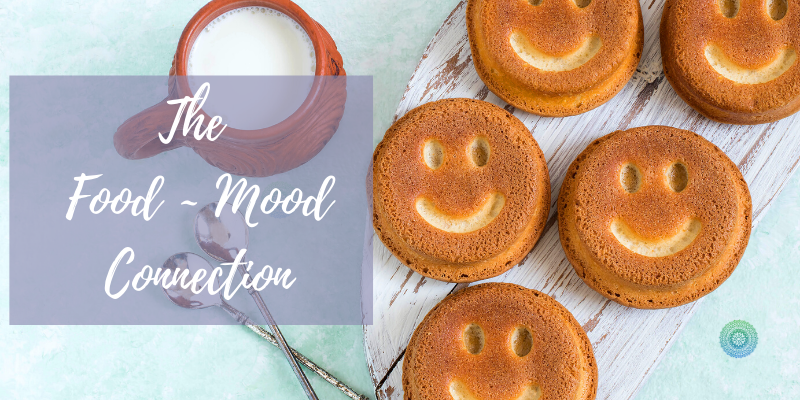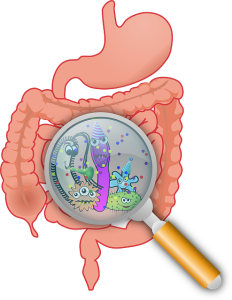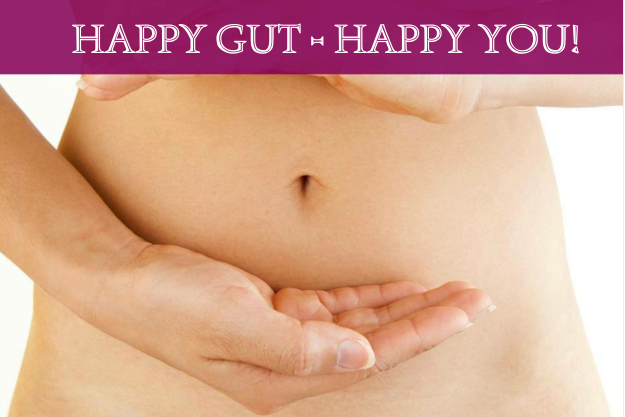Food is Fuel
Food has the ability to improve your mood. If you have a fairly good diet, you can open up your pantry and come upon plenty of mood-boosting delicacies that are both healthy and delicious.
When you are dealing with any mood changes, whether it is more irritability, anger, or just mood swings, it is a good idea to take a look at your health and lifestyle first. While it might be related to a medical condition that your doctor can help treat, consider what your current lifestyle is like.
Are you drinking alcohol or caffeine more than normal? Do you get enough exercise? How is your stress level?
Another important aspect of your mood and mental health is with your diet. There are quite a few healthy and delicious foods that are not only food for your body, but can help boost your mood as well.
Here are the top 14 foods that are going to give you a nice mood boost.
1. Dark Leafy Greens
The first type of food that can be amazing for your mood is dark, leafy greens. Greens have a variety of nutrients. These include fiber, which balances your blood sugar, B vitamins for brain health, as well as iron.
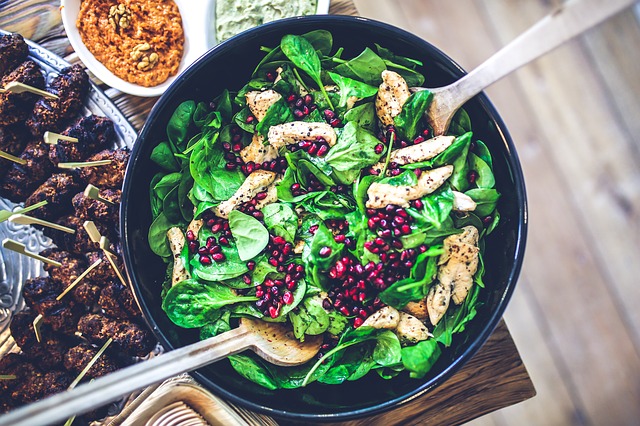
Studies show that iron deficiency is closely linked to anxiety and disrupted neurotransmitters as well, which provides even more reason to eat these nutritious veggies.
Iron also helps to produce energy, which can lead to positive feelings. While it can be great for boosting your mood, you also want to be sure not to have too much iron. Talk to your doctor to discuss the right amount.
2. Salmon
Salmon acts as a great source of omega-3 fatty acids, which are exceptional for helping to boost your mood. Omega-3 fatty acids act as crucial elements in the development of your nervous system and brain. In geographical areas where the residents eat more fatty fish, they become less likely to get anxious or depressed, so it makes sense that it would be good for your mood!
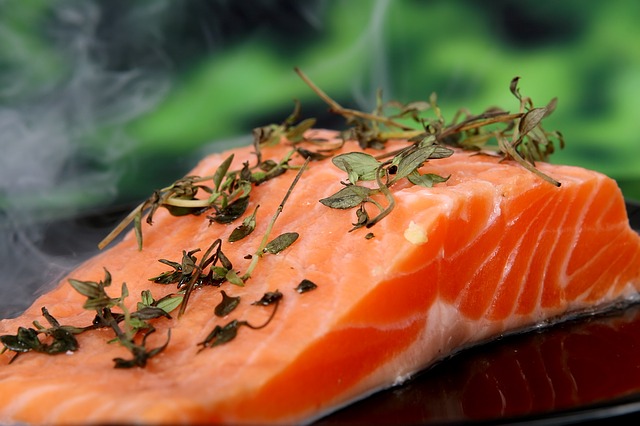
There are also high amounts of protein as well as vitamins B12 and D in omega-3 fatty foods like salmon. If you haven’t had much salmon before, try adding it into your diet slowly. And please do not buy farm raised salmon. Definitely not your healthy choice!
You can just have a little bit of salmon on your salad with lots of veggies (and leafy greens!), or make a small serving of blackened salmon with brown rice and steamed veggies. Super simple.
3. Turkey
Full of tryptophan, turkey produces a neurotransmitter called serotonin. When you have lower levels of tryptophan in your body, that can lead to less serotonin development as well as an increase in depression and anxiety. Turkey also has tyrosine, an amino acid that is related to neurotransmitters.

Turkey is a healthy, low-fat protein option, so it is great for most people’s diets. Whether you are on a general healthy diet, low-carb or low-fat diet, it is going to work great for you. Start adding turkey to your sandwiches, have roasted turkey for dinner, or use ground turkey in place of ground beef in different recipes.
Some other mood-boosting elements of turkey include vitamins B6 and B12, as well as zinc. Zinc deficiencies often lead to increased occurrences of depression and anxiety.
Other high tryptophan foods include nuts, seeds, tofu, cheese, red meat, chicken, turkey, fish, oats, beans, lentils, and eggs.
4. Chia Seeds
Chia seeds act as another rich source of omega-3 fatty acids, as well as nutrients such as iron, calcium, fiber, and protein. These powerful seeds also contains magnesium, which increases feelings of well-being.
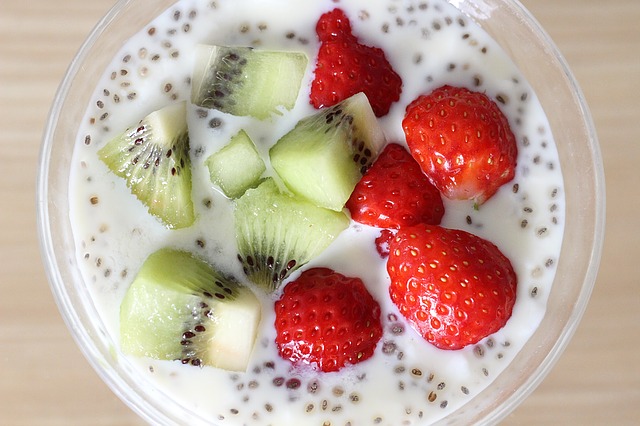
There are so many benefits to chia seeds, that they will not only help aid in boosting your mood along with these other nutritious foods, but they provide overall health and wellness for your body and mind.
The easiest way to incorporate more chai seeds into your diet is by adding them to your smoothie or protein shake. This chia seed pudding is an easy make-ahead treat.
5. Eggs
Eggs were previously thought to be a slightly unhealthy options because of the higher fat content, but many studies have shown that they don’t have the effect on your cholesterol than was once predicted. Of course, if your doctor advises against them, they might still be something to pass up.
However, if you like eggs, definitely add them to your diet to help boost your mood. They are high in vitamins B12 and D, as well as protein. Eggs have choline, which helps with your nervous system, mood, and makes neurotransmitters and selenium, an antioxidant. When you eat antioxidant-rich foods, it helps with your brain health and boosts your mood.
6. Lentils
Next up is lentil, which supply folate, a vitamin that helps your nervous system develop. Those who are deficient in folate experience higher rates of depression. They also contain fiber, which helps with blood sugar, protein, vitamin B6, and iron. Vitamin B6 makes neurotransmitters such as dopamine and serotonin.
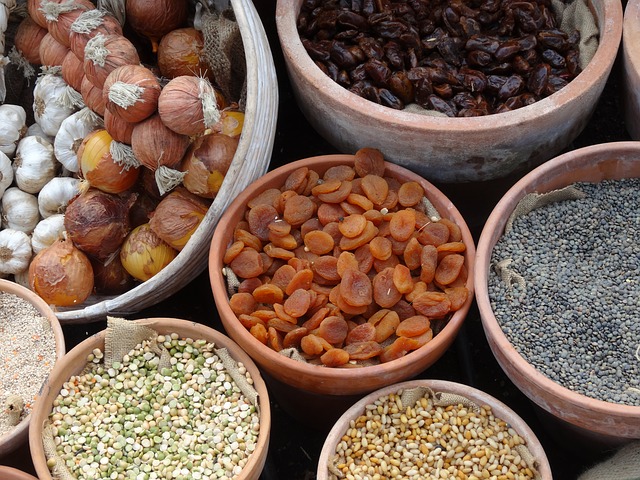
If you are not accustomed to eating lentils, just start small by adding some to salads or having soup with lentils in them.
7. Avocados
The good thing about avocados is that not only do they help boost your mood, but they are delicious! Many people love eating avocados but had no idea they could actually be good for you.
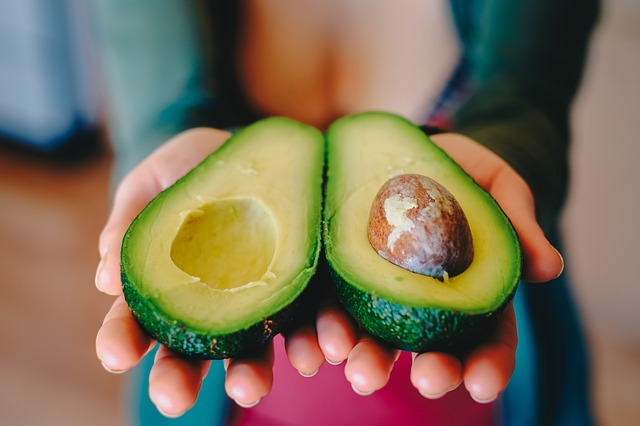
It is true that avocados are higher in fat, but it is the healthy type of fat. They contain fiber and vitamins B6, E and C. Another valuable vitamin you can get from avocados is B5, which helps your neurotransmitters develop.
8. Fermented Foods
In the past few years, research has shown a definite link between your brain and gut. Over 90 percent of serotonin gets produced in your digestive system. So, to get your moods back on track, you will need to prioritize your gut health.
These days, researchers have looked at the link between mood and gut bacteria. Some meta-analyses even say that probiotics can help with depression.
Whether your fermented food item of choice is sauerkraut, kombucha, or even dairy-free yogurt, all of these foods are excellent sources of probiotics.
9. Chocolate
There is a reason you tend to feel better and happier after eating chocolate, and it is not just from the sugar. Chocolate, particularly dark chocolate, is amazing for health and wellness. It contains compounds such as phenylethylamine (for endorphins) and anandamide, which researchers call the “bliss” chemical. Not only is chocolate a good source of antioxidants, but it can also improve cognition and mood.
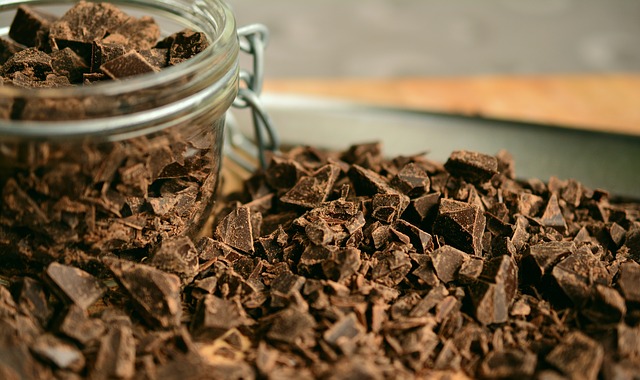
For a healthier option, try to go for the darkest chocolate you are able to enjoy, looking for lower amounts of sugar in the chocolate.
10. Ghee
If you don’t like butter or can’t eat it due to a dairy allergy, you’re in luck! You can instead use ghee, which is made from butter, but doesn’t have the same effect on your body. It also happens to be another great food for improving your mood.
Also known as clarified butter, ghee has a lot of nutritious fats as well as vitamin D. It also helps to heal the digestive tract, which allows your gut bacteria to develop.
11. Sunflower Seeds
A great source of vitamins B6, E, and magnesium, sunflower seeds are a good mood booster for those with allergies to nuts. You can easily switch any type of nut called for in a recipe for sunflower seeds.
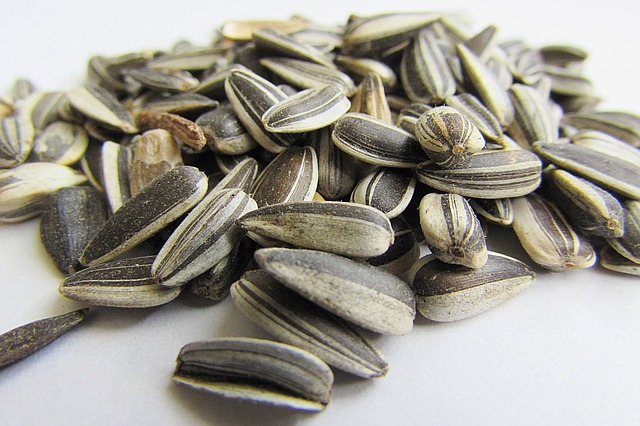
Try adding sunflower seeds to your salads, or just having a handful of the seeds as a snack with a piece of fruit or cheese.
12. Almonds
Almonds act as an amazing source of protein, vitamin E, fiber, and magnesium. Vitamin E acts as an antioxidant, which helps fight damage caused by free radicals. This food item also improves your cognition and memory.
Not only can they help improve your mood and your overall health, but they are really easy to add to your diet. There are so many ways to incorporate more almonds into your diet, from dipping apple slices in almond butter, to switching to almond flour in your baked goods when you want a healthier option.
13. Bell Peppers
Before finishing off this list, we can’t forget about bell peppers. All colors of bell peppers are great for you, low in fat, low in carbohydrates, and have lots of vitamins and minerals.

Bell peppers have the antioxidant vitamin C, which helps the functioning of your nervous system and the improvement of your cognition. Studies show that vitamin C reduces your stress and helps with mood.
14. Sardines
Last, but not least, are sardines. These are an acquired taste and not mandatory, but a good option if you enjoy the salty fish. Sardines come with a bunch of mood-boosting elements. In addition to high levels of vitamin B12, sardines have choline, vitamin D, protein, selenium, and omega-3 fatty acids.
Simple Changes = Big Rewards!
Boosting your mood with food is one of the easiest ways to improve your well-being over time. You can see results even if you don’t overhaul your diet right away. Just making one or two changes to your diet to include more mood-friendly foods can be just the thing to change your life for the better.
Whether that change involves getting acquainted with kombucha or keeping a dark chocolate bar in your drawer “in case of emergency”, making tweaks to your diet now can pay dividends in the future.
